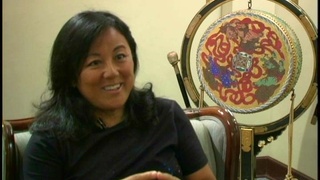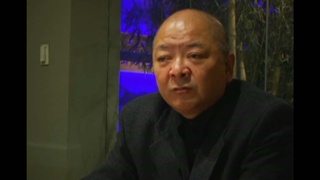Interviews
Hiding out to avoid the concentration camps (Spanish)
(Spanish) I had the opportunity to accompany my father on a visit to see his friend, but on the way we had gone to a farm where…his friend had a farm, he was another Nihonjin, but he was a very intelligent person, he looked so smart, he had books, but it seemed that this man knew a lot of what happened to the Japanese community. I was playing, acting like I minded my own business, I was playing – I’m not sure if it was with a car – I believe it was a wooden truck, and the two of them were seated drinking rum with ocha, and it was there that I heard something that scared me.
He told my father: “Listen Tsukeo”. Not Tsukeo. “Listen Shinki, you know what, get out of here. Sell your store, both stores, you have a grocery store (it was called a tambo). You have a grocery store and you have a restaurant, which shows that you have money, although you are not black listed [yet]. If an informer comes around, you are doomed, and they will bring you to a concentration camp.” Isn’t that something? And my father said, “it has to be done.”
He respected his friend because he looked as a smart guy. And that is what happened: [my father] sold the store to an employee and afterwards he sold the restaurant and then left. He left us with our house; we had a small house where my father, mother, and I lived. When he sold the store, he fled to the countryside and slept in his clients’ homes, and those who his clients were the chacareros, or farm laborers. The chacareros did not have…at that time – here I am talking about before 1940 – one had to take into account that thing, God knows how, in which corner he slept, how to…it´s certain there was no place to sleep, how he slept I don’t know, on a sofa, and so he wouldn´t bother much one family he went to other families and in this fashion until he contracted pneumonia and returned to us.
Date: September 6, 2007
Location: Lima, Peru
Interviewer: Harumi Nako
Contributed by: Asociación Peruano Japonesa (APJ)
Explore More Videos

Traumatic experiences before camp
(1913-2013) Doctor specializing in obstetrics in Southern California

“Everybody went in like sheep”
(1913-2013) Doctor specializing in obstetrics in Southern California

I’m a Japanese, Peruvian… who am I? (Spanish)
(b. 1962) Peruvian Poet, Okinawan descendant

Nikkei identity (Spanish)
(b. 1962) Peruvian Poet, Okinawan descendant

Ambassador of Good Will (Spanish)
(b. 1962) Peruvian Poet, Okinawan descendant

Histories of immigrants (Spanish)
(b. 1962) Peruvian Poet, Okinawan descendant

Integrating As First-Generation Japanese-Peruvian (Japanese)
(b. 1962) Japanese restaurant owner and chef in Peru

Peru Representative vs. Japan Representative (Japanese)
(b. 1962) Japanese restaurant owner and chef in Peru

World-Renowned Peruvian Cuisine (Japanese)
(b. 1962) Japanese restaurant owner and chef in Peru

Fusion Cuisine (Japanese)
(b. 1962) Japanese restaurant owner and chef in Peru

Thoughts on Japan (Japanese)
(b. 1962) Japanese restaurant owner and chef in Peru

Bento menu for hostage incident (Japanese)
(b. 1962) Japanese restaurant owner and chef in Peru

Going to camp with the Terminal Island people
(1927-2010) Political Activist


Interned at age fifteen, I saw camp as an adventure
(1927-2010) Political Activist
